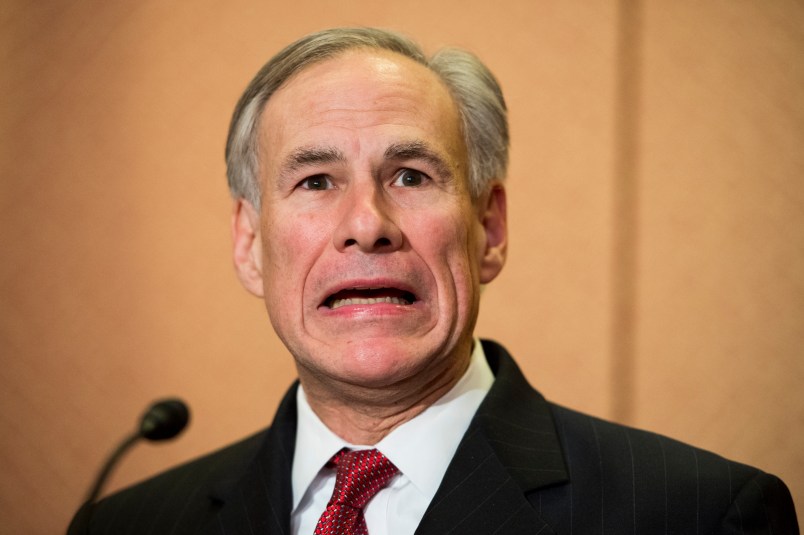A federal judge Wednesday rejected the changes Texas had made to its voter ID law in response to multiple previous court rulings against it and said the legislature would need to go back to the drawing board if it would like to implement a photo voter ID law.
U.S. District Court Judge Nelva Gonzales Ramos also said that the changes Texas sought to make to the voter ID law did not wipe away previous findings that the 2011 law was passed with a discriminatory intent — findings that threaten to put Texas under a scheme that requires federal approval for any changes the state makes to its election policies.
The revised version of the law, known as SB 5, fell “far short of mitigating the discriminatory provisions” of the original law, SB 14, Gonzales Ramos said in her order.
“SB 5 is an improvement over SB 14, but it does not eliminate the discrimination in the choice of photo IDs, which disproportionately continues to impose undue burdens on Hispanics and African-Americans,” the decision said.
The litigation over Texas’ voter ID law has lasted for years. Until recently, the Justice Department fought alongside the challengers in opposing the ID law. This summer, under President Trump’s Attorney General Jeff Sessions, the DOJ joined the side of Texas this summer in this latest bout of litigation.
After the very conservative, full 5th U.S. Circuit Court of Appeals last year ruled against the 2011 law, Texas and the challengers worked out an interim system for the 2016 election in which non-photo ID holders could show another form of ID and sign an affidavit to vote. Texas, with SB 5, sought to codify this affidavit system, known as Declaration of Reasonable Impediment (DRI). Yet the judge pointed out Wednesday that the interim agreement was never meant to be permanent, but rather “a negotiated stop-gap measure addressing a quickly advancing general election.”
“SB 5 does not meaningfully expand the types of photo IDs that can qualify, even though the Court was clearly critical of Texas having the most restrictive list in the country,” the judge said.
Additionally, Texas had also made some changes to the interim affidavit system in the bill the legislature passed. The state tightened the categories a non-photo ID holder could claim to justify using the affidavit and beefed up the penalties if someone lied on the affidavit.
The judge said these changes “appear to be efforts at voter intimidation.”
“The Court has found that SB 14 was enacted with discriminatory intent—
knowingly placing additional burdens on a disproportionate number of Hispanic and
African-American voters. The DRI procedure trades one obstacle to voting with
another—replacing the lack of qualified photo ID with an overreaching affidavit
threatening severe penalties for perjury,” the decision said.
The judge also knocked Texas for not doing enough to educate voters about its revised voter ID system.
The judge said Wednesday that instead of trying to draft a remedy plan that would make the photo voter ID law pass legal muster, she was permanently blocking both the original and revised photo ID requirements. She cited both the ongoing discriminatory intent finding and the lack of evidence of in-person voter impersonation fraud in Texas.
Her decision was not just a major setback for Texas’ efforts to implement its photo voter ID law. It also raised the specter that the state may need to go back under the Voting Rights Act scheme known as pre-clearance. Pre-clearance requires that a state must get either the Justice Department or a federal judge to approve changes to its election policies. Texas was under the pre-clearance scheme until a 2013 Supreme Court decision invalidated the VRA formula that had put it and other states under it.
However, another provision of the VRA, Section 3, allows for states to be put under pre-clearance if they are found to have passed voting laws with a discriminatory intent.
The judge’s order Wednesday gave the parties in the case a week to brief her on what next steps should be taken with regards to considering section 3 in the case.
Read the full decision below:







As a citizen of The Friendship State, I like my governor to look like that ALL the time.
Only five more minutes until a certain orangeorangutan criticises the Judge based on her being female, and other racist sexist grounds. Why cant the White House guy, see how much more than him she knows, that’s why she is a judge.But t-rump will any minute now offer his demeaning opinion unaware that she knows 1000 times more about law and voting than he does.
The governor looks like he is having "a hemorrhoidal incident."
YEA! Making voting less stressful is a very good thing. At least in my city ( San Antonio), they are looking to improve the voting machines that will include paper trail. All signs are hopeful that the State will be moving to Blue.